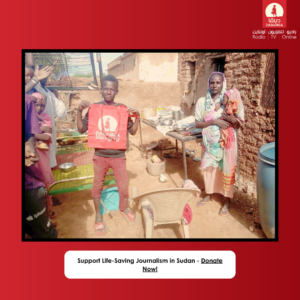’15 women reporters abused in Sudan’: Journalists’ assocation
In a new report by the Sudanese Journalists for Human Rights (JHR), reportedly 15 women journalists have been abused by the security apparatus in Sudan in one year’s time.
In a new report by the Sudanese Journalists Association for Human Rights (JAHR), reportedly 15 women journalists have been abused by the security apparatus in Sudan in one year’s time.
Another five journalists have been subjected to judicial and legal procedures for their work, and three have been abused by various state institutions, the annual report by JHR read.
The publication of the report about abuse against women journalists coincided with World Press Freedom Day. In another report by Reporters Without Borders, Sudan was ranked 174 out of the 180 researched countries in the 2017 World Press Freedom Index.
JAHR concluded that there is a phenomenon of assault and systematically targeting the rights of women reporters. In a press statement the network said it is interested in monitoring, documenting and reporting these cases. “From our observations, the reported number is a small percentage of the actual violations that are increasing at an accelerating pace”.
Confiscations
Sudanese newspapers have been subjected to 66 confiscations of printed issues by the Sudanese security service during the period May 2016 to May 2017. In total Sudan witnessed ten cases of suspension of newspapers for days in a row by the security service (NISS).
“Sudanese security service uses the right of litigation and investigation by means of punitive, selective, and discriminatory measures, targeting journalists and the press, as well as using other methods to intimidate them with prosecution. These do not meet fair trial conditions, along with procedures to force them to exercise self-censorship, with directives and security orders,” said JAHR.
‘Confiscations have become a systematic phenomenon to subject newspapers to financial and moral losses.’
The organisation explained that the NISS resorts to confiscation of newspapers after printing “as a systematic phenomenon intended to subject the newspapers to financial losses, which may force them to exit the sales market”. This in addition to moral losses for the media houses.
It added that media institutions and publishing houses are particularly vulnerable to the series of economic, security and administrative restrictions, according to the network, such as punitive tax measures, restrictions on access to official authorisations to work, and repressive security measures and confiscations of books.
According to Reporters Without Borders, “the NISS hounds journalists and censors the print media by closing down newspapers such as El Tayar, El Jareeda, and El Watan, or by confiscating entire issues as they come off the press. The authority of the NISS was reinforced by a January 2015 amendment to the 2005 Interim Constitution granting it powers equivalent to those of the army.”











 and then
and then